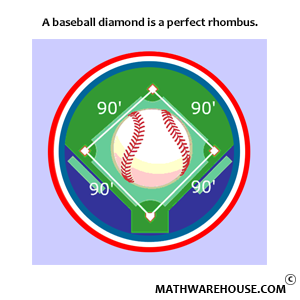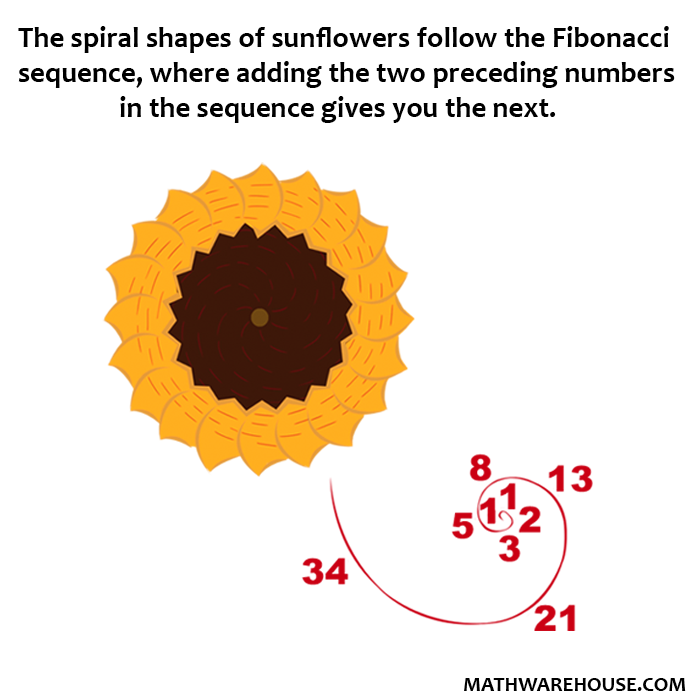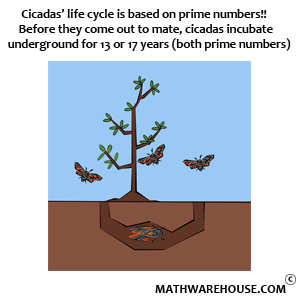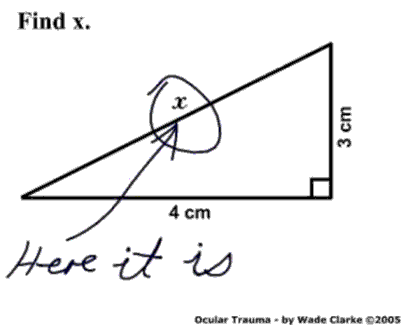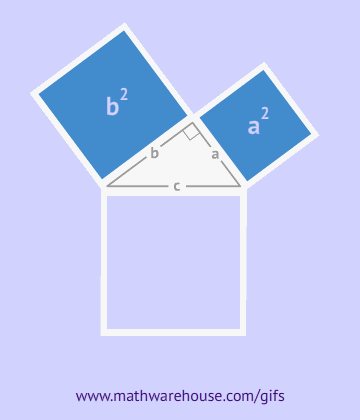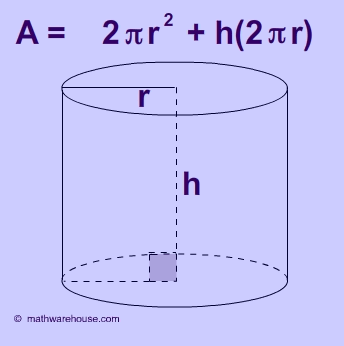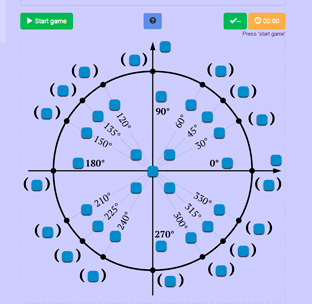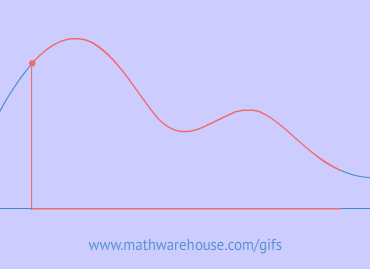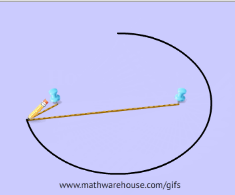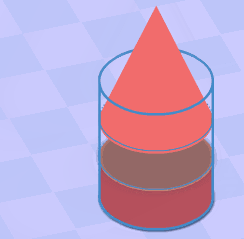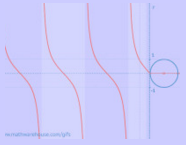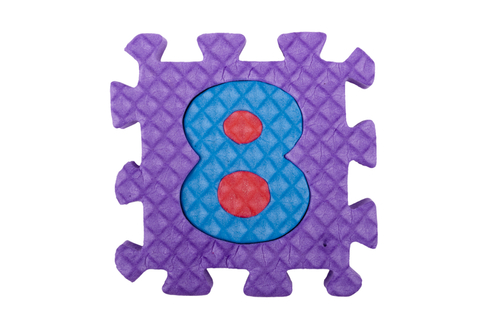Identify the slope of the function.
Since this function is linear, we know its derivative is just the slope. In this case, the slope is $$\frac 1 3$$, so $$f'(x) = \frac 1 3$$.
Evaluate the derivative at $$x = 12$$.
$$f'(12) = \frac 1 3$$
(Since the derivative is a constant, the value of $$x$$ won't change it.)
$$\displaystyle f'(12) = \frac 1 3$$
Identify the slope of the function.
This function can be written as $$f(x) = -5x - 10$$, so its slope is $$m = -5$$. Since the function is linear, this is also the value of its derivative.
$$f'(x) = -5$$
Use the constant coefficient rule and the derivative of the sine.
$$ \begin{align*} \frac d {dx}\left[6\sin\left(\frac \pi 3 x\right)\right] & = 6\cdot \frac d {dx}\left[\sin\left(\frac \pi 3 x\right)\right] && \mbox{Coefficient Rule}\\[6pt] & = 6\cdot \left[\frac \pi 3 \cdot \cos\left(\frac \pi 3 x\right)\right] && \mbox{Derivative of the Sine}\\[6pt] & = 2\pi\cos\left(\frac \pi 3 x\right) \end{align*} $$
$$\displaystyle f'(x) = 2\pi \cos\left(\frac \pi 3 x\right)$$ when $$f(x) = 6\sin\left(\frac \pi 3 x\right)$$ and $$x$$ is in radians.
Use the Constant Coefficient rule and the derivative of the sine.
$$ \begin{align*} \frac d {dx}\left(-2\sin 11x\right) & = -2\cdot\frac d {dx}\left(\sin 11x\right) && \mbox{Coefficient Rule}\\[6pt] & = -2\cdot\left(11\cos 11x\right) && \mbox{Derivative of the Sine}\\[6pt] & = -22\cos 11x \end{align*} $$
Evaluate the derivative at $$x = \frac \pi 3$$.
$$ f'\left(\frac \pi 3\right) = -22\cos\left(11\cdot \frac \pi 3\right) = -22\cos\left(\frac{11\pi} 3\right) = -22\left(\frac 1 2\right) = -11$$
$$\displaystyle f'\left(\frac \pi 3\right) = -11$$ when $$f(x) = -2\sin 11x$$ and $$x$$ is in radians.
Use the Constant Coefficient rule and the derivative of the Cosine.
$$ \begin{align*} \frac d {dx}\left[\frac 1 4 \cos\left(\frac{2\pi} 3 x\right)\right] & = \frac 1 4 \cdot \frac d {dx}\left[\cos\left(\frac{2\pi} 3 x\right)\right] && \mbox{Coefficient Rule}\\[6pt] & = \frac 1 4 \cdot \left[-\frac{2\pi} 3\sin\left(\frac{2\pi} 3 x\right)\right] && \mbox{Derivative of the Cosine}\\[6pt] & = -\frac \pi 6 \sin\left(\frac{2\pi} 3 x\right) \end{align*} $$
Evaluate the derivative at $$x = 4$$.
$$ \begin{align*} f'(4) & = -\frac \pi 6 \sin\left(\frac{2\pi} 3\cdot 4\right)\\[6pt] & = -\frac \pi 6 \sin\left(\frac{8\pi} 3\right)\\[6pt] & = -\frac \pi 6 \cdot \frac{\sqrt 3} 2\\[6pt] & = -\frac{\pi \sqrt 3}{12} \end{align*} $$
$$\displaystyle f'(4) = -\frac{\pi \sqrt 3}{12}$$ when $$f(x) = \frac 1 4\cos\left(\frac{8\pi} 3\right)$$ and $$x$$ is in radians.
Use the Constant Coefficient rule and the derivative of the Cosine.
$$ \begin{align*} \frac d {dx}\left(-7\cos 9x\right) & = -7\cdot \frac d {dx}\left(\cos 9x\right) && \mbox{Coefficient rule}\\[6pt] & = -7\cdot \left(-9\sin 9x\right) && \mbox{Derivative of the Cosine}\\[6pt] & = 63\sin 9x \end{align*} $$
$$f'(x) = 63\sin 9x$$ when $$f(x) = -7\cos 9x$$ and $$x$$ is in radians.
Use the Constant Coefficient rule and the derivative of the exponential function.
$$ \begin{align*} \frac d {dx}\left(3e^{12x}\right) & = 3\cdot\frac d {dx}\left(e^{12x}\right) && \mbox{Coefficient Rule}\\[6pt] & = 3\left(12e^{12x}\right) && \mbox{Derivative of } e^{kx}\\[6pt] & = 36e^{12x} \end{align*} $$
$$f'(x) = 36e^{12x}$$ when $$f(x) = 3e^{12x}$$
Use the Constant Coefficient rule and the derivative of exponential functions.
$$ \begin{align*} \frac d {dt} \left(-\frac 1 2 e^{-0.4 t}\right) & = -\frac 1 2 \cdot \frac d {dt}\left(e^{-0.4 t}\right) && \mbox{Coefficient Rule}\\[6pt] & = -\frac 1 2\left(-0.4e^{-0.4 t}\right) && \mbox{Derivative of } e^{kx}\\[6pt] & = 0.2e^{-0.4 t} \end{align*} $$
Evaluate the derivative at $$t = 0$$.
$$ f'(0) = 0.2e^{-0.4(0)} = 0.2e^0 = 0.2(1) = 0.2 $$
$$f'(0) = 0.2$$ when $$f(t) = -\frac 1 2 e^{-0.4 t}$$
Evaluate the derivative.
$$ \begin{align*} \frac d {dt}\left(8 + 2\sin 3t\right) & = \frac d {dt}(8) + \frac d {dt}\left(2\sin 3t\right) && \mbox{Sum Rule}\\[6pt] & = 0 + \frac d {dt}\left(2\sin 3t\right) && \mbox{Constant Rule}\\[6pt] & = 2\cdot\frac d {dt}\left(\sin 3t\right) && \mbox{Coefficient Rule}\\[6pt] & = 2\left(3\cos 3t\right) && \mbox{Derivative of the Sine}\\[6pt] & = 6\cos 3t \end{align*} $$
Evaluate the derivative at $$t = \pi$$.
$$ f'(\pi) = 6\cos (3\pi) = 6(-1) = -6 $$
$$f'(\pi) = -6$$ when $$f(t) = 8 + 2\sin 3t$$ and $$t$$ is in radians.
Evaluate the derivative.
$$ \begin{align*} \frac d {d\theta}\left[\sin(4\theta) - 13\right] & = \frac d {d\theta}\left[\sin 4\theta \right] - \frac d {d\theta}(13) & \mbox{Difference Rule}\\[6pt] & = \frac d {d\theta}\left[\sin 4\theta \right] - 0 & \mbox{Constant Rule}\\[6pt] & = 4\cos 4\theta & \mbox{Derivative of the Sine} \end{align*} $$
$$f'(\theta) = 4\cos 4 \theta$$ when $$f(\theta) = \sin(4\theta) - 13$$ and $$\theta$$ is in radians.
Evaluate the derivative.
$$ \begin{align*} \frac d {d\theta}\left(\frac 8 5 + \cos 9\theta\right) & = \frac d {d\theta}\left(\frac 8 5\right) + \frac d {d\theta}\left(\cos 9\theta\right) & \mbox{Sum Rule}\\[6pt] & = 0 + \frac d {d\theta}\left(\cos 9\theta\right) & \mbox{Constant Rule}\\[6pt] & = -9\sin 9\theta & \mbox{Derivative of the Cosine} \end{align*} $$
$$f'(\theta) = -9\sin 9\theta$$ when $$f(\theta) = \frac 8 5 + \cos 9\theta$$ and $$\theta$$ is in radians.
Evaluate the derivative.
$$ \begin{align*} \frac d {dt}\left(53 - \cos 5t\right) & = \frac d {dt}\left(53\right) - \frac d {dt}\left(\cos 5t\right) & \mbox{Difference Rule}\\[6pt] & = 0 - \frac d {dt}\left(\cos 5t\right) & \mbox{Constant Rule}\\[6pt] & = -\left(-5\sin 5t\right) & \mbox{Derivative of the Cosine}\\[6pt] & = 5\sin 5t \end{align*} $$
Evaluate the derivative at $$t = \frac \pi 6$$.
$$ f'\left(\frac \pi 6\right) = 5\sin\left(5\cdot \frac \pi 6\right) = 5 \sin\left(\frac{5\pi} 6\right) = 5\left(\frac 1 2\right) = \frac 5 2 $$
$$f'\left(\frac \pi 6\right) = \frac 5 2$$ when $$f(t) = 53 - \cos 5t$$ and $$t$$ is in radians.
Evaluate the derivative.
$$ \begin{align*} \frac d {dt}\left(85 + 14e^{-6t}\right) & = \frac d {dt}\left(85\right) + \frac d {dt}\left(14e^{-6t}\right) & \mbox{Sum Rule}\\[6pt] & = 0 + \frac d {dt}\left(14e^{-6t}\right) & \mbox{Constant Rule}\\[6pt] & = 14\cdot \frac d {dt}\left(e^{-6t}\right) & \mbox{Coefficient Rule}\\[6pt] & = 14\cdot \left(-6e^{-6t}\right) & \mbox{Derivative of } e^{kx}\\[6pt] & = -84e^{-6t} \end{align*} $$
Evaluate the derivative at $$t = 1$$.
$$ f'(1) = -84e^{-6(1)} = -84e^{-6} \approx -0.2082 $$
$$f'(1) = -84e^{-6} \approx -0.2082$$ when $$f(t) = 85 + 14e^{-6t}$$
Find the derivative using the established rules.
$$ \begin{align*} \frac d {dx}\left(100 - 75e^{-0.01x}\right) & = \frac d {dx}\left(100\right) - \frac d {dx}\left(75e^{-0.01x}\right) & \mbox{Difference Rule}\\[6pt] & = 0 - \frac d {dx}\left(75e^{-0.01x}\right) & \mbox{Constant Rule}\\[6pt] & = 75\cdot\frac d {dx}\left(e^{-0.01x}\right) & \mbox{Coefficient Rule}\\[6pt] & = 75\cdot\left(-0.01e^{-0.01x}\right) & \mbox{Derivative of } e^{kx}\\[6pt] & = -0.75e^{-0.01x} \end{align*} $$
$$f'(x) = -0.75e^{-0.01x}$$ when $$f(x) = 100 - 75e^{-0.01x}$$
Find the derivative.
$$ \begin{align*} f(x) & = \frac 7 5 \blue x + \frac 1 5\red{\sin 4x}\\[6pt] f'(x) & = \frac 7 5\blue{(1)} + \frac 1 5\red{(4\cos 4x)}\\[6pt] f'(x) & = \frac 7 5 + \frac 4 5\cos 4x \end{align*} $$
$$\displaystyle f'(x) = \frac 7 5 + \frac 4 5 \cos 4x$$ when $$f(x) = \frac 7 5 x + \frac 1 5 \sin 4x$$
Find the derivative.
$$ \begin{align*} f(x) & = \sqrt 2 \,\blue x - 11\red{\sin 3x}\\[6pt] f'(x) & = \sqrt 2 \,\blue{(1)} - 11\red{(3\cos 3x)}\\[6pt] f'(x) & = \sqrt 2 - 33\cos 3x \end{align*} $$
Evaluate the derivative at $$x = \frac \pi 4$$.
$$ \begin{align*} f'\left(\frac \pi 4\right) & = \sqrt 2 - 33\cos\left(\frac{3\pi} 4\right)\\[6pt] & = \sqrt 2 - 33\cdot \frac{\sqrt 2} 2\\[6pt] & = \frac{\sqrt 2} 1 - \frac{33\sqrt 2} 2\\[6pt] & = -\frac{31\sqrt 2} 2 \end{align*} $$
$$\displaystyle f'\left(\frac \pi 4\right) = -\frac{31\sqrt 2} 2$$ when $$f(x) = \sqrt 2 \,x - 11\sin 3x$$ and $$x$$ is in radians.
Find the derivative.
$$ \begin{align*} f(x) & = \blue{6x + 5} + 4\red{\cos 3x}\\[6pt] f'(x) & = \blue{6(1) + 0} + 4\red{(-3\sin 3x)}\\[6pt] & = 6 - 12\sin 3x \end{align*} $$
Evaluate the derivative at $$x = 0$$.
$$ f'(0) = 6 - 12\sin 0 = 6 - 12(0) = 6 $$
$$f'(0) = 6$$ when $$f(x) = 6x + 5 + 4\cos 3x$$.
Find the derivative.
$$ \begin{align*} f(x) & = \blue{\frac 1 4 x + \frac 3 4} - \frac 7 8\red{\cos \pi x}\\[6pt] f'(x) & = \blue{\frac 1 4 + 0} - \frac 7 8 \red{(-\pi\sin \pi x)}\\[6pt] & = \frac 1 4 + \frac{7\pi} 8 \sin \pi x \end{align*} $$
$$\displaystyle f'(x) = \frac 1 4 + \frac{7\pi} 8 \sin \pi x$$ when $$\displaystyle f(x) = \frac 1 4 x + \frac 3 4 - \frac 7 8\cos \pi x$$ and $$x$$ is in radians.
Find the derivative.
$$ \begin{align*} f(x) & = \blue{9x} + 8\red{e^{0.5x}}\\[6pt] f'(x) & = \blue 9 + 8\red{(0.5e^{0.5x})}\\[6pt] & = 9 + 4e^{0.5x} \end{align*} $$
$$f'(x) = 9 + 4e^{0.5x}$$ when $$f(x) = 9x + 8e^{0.5x}$$
Find the derivative.
$$ \begin{align*} f(t) & = \blue{18t} - 32\red{e^{-0.25t}}\\[6pt] f'(t) & = \blue{18} - 32\red{(-0.25e^{-0.25t})}\\[6pt] & = 18 + 8e^{-0.25t} \end{align*} $$
Evaluate the derivative at $$x = 0$$.
$$ f'(0) = 18 + 8e^{-0.25(0)} = 18 + 8e^0 = 18 + 8 = 26 $$
$$f'(0) = 26$$ when $$f(t) = 18t - 32e^{-0.25t}$$
Find the derivative.
$$ \begin{align*} f(x) & = \frac 1 2\left(\blue{e^x} - \red{e^{-x}}\right)\\[6pt] & = \frac 1 2\left(\blue{e^{1x}} - \red{e^{-1x}}\right)\\[6pt] f'(x) & = \frac 1 2 \left(\blue{1\cdot e^{1x}} - \red{(-1\cdot e^{-1x}})\right)\\[6pt] & = \frac 1 2 \left(e^{x} + e^{-x}\right) \end{align*} $$
$$f'(x) = \frac 1 2 \left(e^{x} + e^{-x}\right)$$ when $$f(x) = \frac 1 2\left(e^x - e^{-x}\right)$$
Find the derivative.
$$ \begin{align*} f(x) & = \frac 1 2 \left(\blue{e^x} + \red{e^{-x}}\right)\\[6pt] & = \frac 1 2 \left(\blue{e^{1x}} + \red{e^{-1x}}\right)\\[6pt] f'(x) & = \frac 1 2 \left(\blue{1\cdot e^{1x}} + \red{(-1\cdot e^{-1x})}\right)\\[6pt] & = \frac 1 2 \left(e^x -e^{-x}\right) \end{align*} $$
$$f'(x) = \frac 1 2 \left(e^x -e^{-x}\right)$$ when $$f(x) = \frac 1 2 \left(e^x + e^{-x}\right)$$

